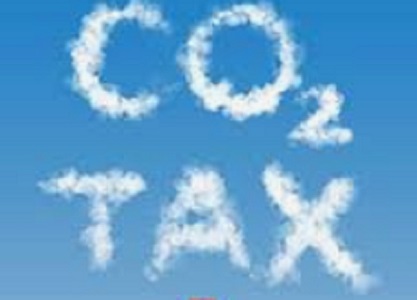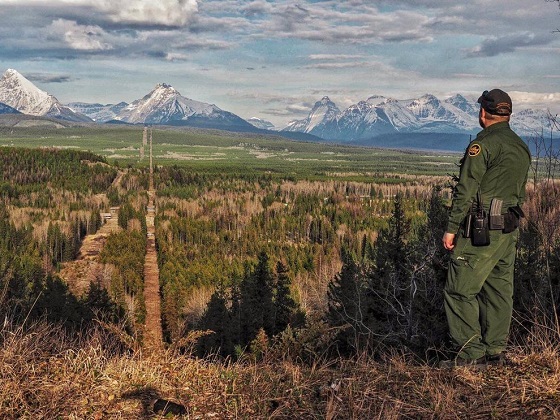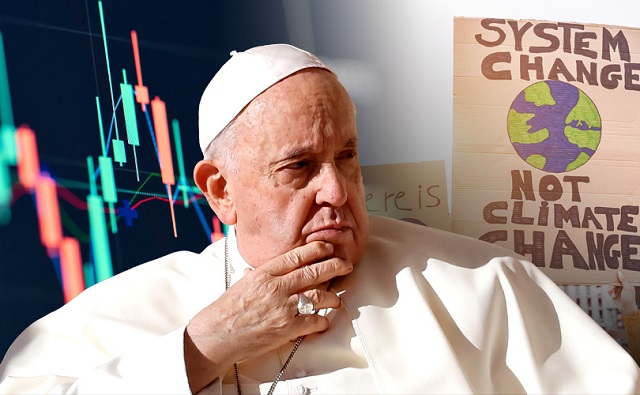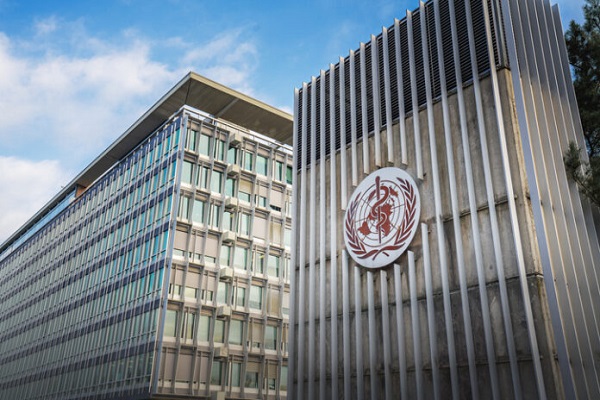Economy
Politics the only consistency in carbon tax policy

From the Frontier Centre for Public Policy
By Lee Harding
Never mind that there is no easy connection between CO2 and temperatures, except in […]
The misplaced idea that carbon dioxide is pollution undergirds the dubious concept of the carbon tax. Never mind that there is no easy connection between CO2 and temperatures, except in the easily questioned computer models created by climate change proponents. Nevertheless, the carbon tax policy is the signature climate change policy of the Trudeau Government. This tax has raised energy prices across the country and supercharged inflation without any impact on reducing harmless carbon dioxide emissions.
The main impact of the carbon tax is to reduce of everybody’s living standards just a bit more each year. Finally, it seems to have succeeded in doing something else: undermining Liberal support. The awkward attempt to solve this political and policy problem sent federal arguments for the carbon tax into complete contradiction last week.
On October 26 Prime Minister Justin Trudeau announced a three-year moratorium on carbon taxes for home heating oil, a move that was good politics but curious policy.
“We’ve heard clearly from Atlantic Canadians through our amazing Atlantic MPs that since the federal pollution price came into force … certain features of that pollution price needed adjusting to work for everyone,” said Trudeau.
You see, last July Atlantic provinces had to give Ottawa worthy proposals to keep themselves out of Ottawa’s carbon pricing scheme. They failed, so their citizens have felt the pinch. Forty percent of Atlantic Canadians, but only three percent of all Canadians use fuel oil.
This reality facilitated a political solution–a national policy with mostly regional consequences for Liberal support. The problem was how to spin it.
“We are doubling down on our fight against climate change and…supporting Canadians while we fight climate change,” the PM said.
“Economists and experts around the world have long known that putting a price on carbon emissions is the best way to drive down those emissions that cause climate change, is the cheapest, most efficient and most impactful way and it’s working,” the PM insisted.
This circle can’t be squared, except politically. The fuel oil announcement was made hours before Conservative Leader Pierre Poilievre held his scheduled “Axe the Tax” rally against carbon taxes in Windsor, N.S., the riding of Liberal Atlantic Caucus chair Kody Blois.
Put together, this is a national but regional policy to adjust a carbon tax that works but does not work. It’s doubtful that taxes or grants will change the weather, of course, but fuel oil was unworthy of an exemption.
The heat output per gallon of fuel oil is 138,690 British Thermal Units and almost equal to that of natural gas (139,050 BTU). However, natural gas only produces 117 lbs of CO2 per million BTU, whereas distillate fuel oil produces more than 160 lbs. The worst “polluters” just got a break.
Meanwhile, residents west of Quebec, where natural gas use ranges from 49 to 77 per cent, will pay carbon taxes, as they always have–and more so as they increase every April. It’s moves like this that have allowed a federal government to maintain power that hasn’t won the popular vote since 2015.
Poilievre’s plan to end the carbon tax is a winner for policy sanity.
Lee Harding is a Research Fellow at the Frontier Centre for Public Policy.
Economy
Canadians experiencing second-longest and third steepest decline in living standards in last 40 years

From the Fraser Institute
From 2019 to 2023, Canadian living standards declined—and as of the end of 2023, the decline had not yet ended, finds a new study published today by the Fraser Institute, an independent, non-partisan Canadian public policy think-tank.
“Despite claims to the contrary, living standards are declining in Canada,” said Grady Munro, policy analyst at the Fraser Institute and co-author of Changes in Per-Person GDP (Income): 1985 to 2023.
Specifically, from April 2019 to the end of 2023, inflation-adjusted per-person GDP, a broad measure of living standards, declined from $59,905 to $58,111 or by 3.0 per cent. This decline is exceeded only by the decline in 1989 to 1992 (-5.3 per cent) and 2008 to 2009 (-5.2 per cent). In other words, it’s the third-steepest decline in 40 years.
Moreover, the latest decline (which comprises 18 fiscal quarters) is already the second-longest in the last 40 years, surpassed only by the decline from 1989 to 1994 (which lasted 21 quarters). And if not stabilized in 2024, this decline could be the steepest and longest in four decades.
“The severity of the decline in living standards should be a wake-up call for policymakers across Canada to immediately enact fundamental policy reforms to help spur economic growth and productivity,” said Jason Clemens, study co-author and executive vice-president at the Fraser Institute.
- Real GDP per person is a broad measure of incomes (and consequently living standards). This paper analyzes changes in quarterly per-person GDP, adjusted for inflation from 1985 through to the end of 2023, the most recent data available at the time of writing.
- The study assesses the length (number of quarters) as well the percentage decline and the length of time required to recover the income lost during the decline.
- Over the period covered (1985 to 2023), Canada experienced nine periods of decline and recovery in real GDP per person.
- Of those nine periods, three (Q2 1989 to Q3 1994, Q3 2008 to Q4 2011, and Q2 2019 to Q2 2022) were most severe when comparing the length and depth of the declines along with number of quarters required for real GDP per person to recover.
- The experience following Q2 2019 is unlike any decline and recovery since 1985 because, though per person GDP recovered for one quarter in Q2 2022, it immediately began declining again and by Q4 2023 remains below the level in Q2 2019.
- This lack of meaningful recovery suggests that since mid-2019, Canada has experienced one of the longest and deepest declines in real GDP per person since 1985, exceeded only by the decline and recovery from Q2 1989 to Q3 1994.
- If per-capita GDP does not recover in 2024, this period may be the longest and largest decline in per-person GDP over the last four decades.
 Read the Full Report
Read the Full Report
Authors:
Economy
Feds spend $3 million to fly 182 politicians and bureaucrats to climate conference

From the Canadian Taxpayers Federation
Author: Ryan Thorpe
Feds trip to COP28 in Dubai cost $3 million
The cost for Canada to send hundreds of people to COP28 in Dubai has doubled, rising to nearly $3 million, according to government records obtained by the Canadian Taxpayers Federation.
Included in those costs is $1.3 million the federal government dished out to host a “Canada Pavilion” at the summit, which featured a rapper performing a song on “climate disinformation,” while giving a shoutout to Environment Minister Steven Guilbeault.
“Nothing screams fighting climate change like flying around the world burning through jet fuel and millions of tax dollars,” said Franco Terrazzano, CTF Federal Director. “Here’s a crazy idea: maybe the feds don’t need to spend $3 million flying 182 politicians and bureaucrats to Dubai.”
The federal government paid for at least 182 people to go to COP28, held from Nov. 30 to Dec. 12, 2023, in Dubai, United Arab Emirates.
A previous report from the National Post pegged the cost for Canada’s delegation at $1.4 million.
But the bill now sits at $2,954,188, including $825,466 for transportation, $472,570 for accommodations and $295,455 for meals and incidentals, according to the records.
The records indicate the cost could rise even higher, as certain invoices and travel claims “have yet to be processed.”
Costs included $1.3 million for a “Canada Pavilion” to “showcase the breadth of Canadian climate leadership.”
At the Canada Pavilion, a Canadian rapper known as Baba Brinkman – the son of Liberal MP Joyce Murray – performed a rap on “climate disinformation.”
“Climate disinformation, get that immunization, the vaccine for bad meme infiltration,” Brinkman rapped. “Climate misinformation, it leads to polarization, which leads to radical conspiracy ideation.”
Environment Minister Steven Guilbeault also received a shoutout during Brinkman’s rap.
“Really? Hosting a rapper half-way around the world to drop rhymes at a government podium will help the environment?” Terrazzano said.
The records were released in response to an order paper question from Conservative MP Dan Mazier (Dauphin-Swan River-Neepawa).
Most of the hotel expenses came from the Dubai Marriott and the Premier Inn at the Dubai Investment Park, with rooms coming in between $150 and $400 per night.
The most expensive digs was a $816-per-night suite at the Pullman Dubai Jumeriah Lakes Towers, a “five-star hotel offering upscale accommodations.”
The Canadian delegation also handed out $650 worth of gifts during the trip.
-

 Crime2 days ago
Crime2 days agoThe US Canadian border: Greatest number of terrorist watch list individuals being apprehended at northern border
-

 Economy19 hours ago
Economy19 hours agoCanadians experiencing second-longest and third steepest decline in living standards in last 40 years
-

 COVID-192 days ago
COVID-192 days agoNIH Quietly Altered Definition For Gain-Of-Function Research On Its Website, Former Fauci Aide Confirms
-

 Opinion22 hours ago
Opinion22 hours agoOrdinary working Canadians are not buying into transgender identity politics
-

 Energy2 days ago
Energy2 days agoPope Francis calls for ‘global financial charter’ at Vatican climate change conference
-

 Great Reset20 hours ago
Great Reset20 hours agoBiden Administration Eager to Sign WHO Pandemic Treaty
-

 Energy22 hours ago
Energy22 hours agoNew Report Reveals Just How Energy Rich America Really Is
-

 Economy19 hours ago
Economy19 hours agoFeds spend $3 million to fly 182 politicians and bureaucrats to climate conference










